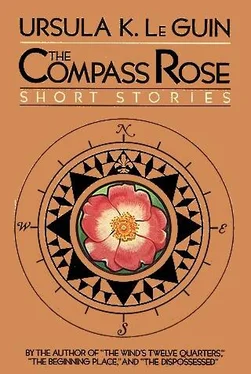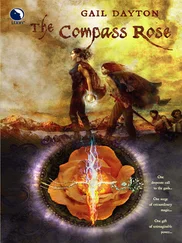—G. D’Axbay, T. R. Bardol
ANNOUNCEMENT OF AN EXPEDITION
The extreme difficulty of reading Penguin has been very much lessened by the use of the underwater motion-picture camera. On film it is at least possible to repeat, and to slow down, the fluid sequences of the script, to the point where, by constant repetition and patient study, many elements of this most elegant and lively literature may be grasped, though the nuances, and perhaps the essence, must forever elude us.
It was Professor Duby who, by pointing out the remote affiliation of the script with Low Greylag, made possible the first tentative glossary of Penguin. The analogies with Dolphin which had been employed up to that time never proved very useful, and were often quite misleading.
Indeed it seemed strange that a script written almost entirely in wings, neck, and air should prove the key to the poetry of short-necked, flipper-winged water-writers. But we should not have found it so strange if we had kept in mind the fact that penguins are, despite all evidence to the contrary, birds.
Because their script resembles Dolphin in form, we should never have assumed that it must resemble Dolphin in content. And indeed it does not. There is, of course, the same extraordinary wit, the flashes of crazy humor, the inventiveness, and the inimitable grace. In all the thousands of literatures of the Fish stock, only a few show any humor at all, and that usually of a rather simple, primitive sort; and the superb gracefulness of Shark or Tarpon is utterly different from the joyous vigor of all Cetacean scripts. The joy, the vigor, and the humor are all shared by Penguin authors; and, indeed, by many of the finer Seal auteurs. The temperature of the blood is a bond. But the construction of the brain, and of the womb, makes a barrier! Dolphins do not lay eggs. A world of difference lies in that simple fact.
Only when Professor Duby reminded us that penguins are birds, that they do not swim but fly in water, only then could the therolinguist begin to approach the sea literature of the penguin with understanding; only then could the miles of recordings already on film be restudied and, finally, appreciated.
But the difficulty of translation is still with us. A satisfying degree of promise has already been made in Adélie. The difficulties of recording a group kinetic performance in a stormy ocean as thick as pea soup with plankton at a temperature of 31° Fahrenheit are considerable; but the perseverance of the Ross Ice Barrier Literary Circle has been fully rewarded with such passages as “Under the Iceberg,” from the Autumn Song —a passage now world famous in the rendition by Anna Serebryakova of the Leningrad Ballet. No verbal rendering can approach the felicity of Miss Serebryakova’s version. For, quite simply, there is no way to reproduce in writing the all-important multiplicity of the original text, so beautifully rendered by the full chorus of the Leningrad Ballet company.
Indeed, what we call “translations” from the Adélie—or from any group kinetic text—are, to put it bluntly, mere notes—libretto without the opera. The ballet version is the true translation. Nothing in words can be complete.
I therefore suggest, though the suggestion may well be greeted with frowns of anger or with hoots of laughter, that for the therolinguist —as opposed to the artist and the amateur—the kinetic sea writings of Penguin are the least promising field of study: and, further, that Adélie, for all its charm and relative simplicity, is a less promising field of study than is Emperor.
Emperor!—I anticipate my colleagues’ response to this suggestion. Emperor! The most difficult, the most remote, of all the dialects of Penguin! The language of which Professor Duby himself remarked, “The literature of the emperor penguin is as forbidding, as inaccessible, as the frozen heart of Antarctica itself. Its beauties may be unearthly, but they are not for us.”
Maybe. I do not underestimate the difficulties: not least of which is the imperial temperament, so much more reserved and aloof than that of any other penguin. But, paradoxically, it is just in this reserve that I place my hope. The emperor is not a solitary, but a social bird, and while on land for the breeding season dwells in colonies, as does the Adélie; but these colonies are very much smaller and very much quieter than those of the Adélie.The bonds between the members of an emperor colony are rather personal than social. The emperor is an individualist. Therefore I think it almost certain that the literature of the emperor will prove to be composed by single authors, instead of chorally; and therefore it will be translatable into human speech. It will be a kinetic literature, but how different from the spatially extensive, rapid, multiplex choruses of sea writing! Close analysis, and genuine transcription, will at last be possible.
What! say my critics—Should we pack up and go to Cape Crozier, to the dark, to the blizzards, to the -60° cold, in the mere hope of recording the problematic poetry of a few strange birds who sit there, in the mid-winter dark, in the blizzards, in the -60° cold, on the eternal ice, with an egg on their feet?
And my reply is, Yes. For, like Professor Duby, my instinct tells me that the beauty of that poetry is as unearthly as anything we shall ever find on earth.
To those of my colleagues in whom the spirit of scientific curiosity and aesthetic risk is strong, I say, Imagine it: the ice, the scouring snow, the darkness, the ceaseless whine and scream of wind. In that black desolation a little band of poets crouches. They are starving; they will not eat for weeks. On the feet of each one, under the warm belly feathers, rests one large egg, thus preserved from the mortal touch of the ice. The poets cannot hear each other; they cannot see each other. They can only feel the other’s warmth. That is their poetry, that is their art. Like all kinetic literatures, it is silent; unlike other kinetic literatures, it is all but immobile, ineffably subtle. The ruffling of a feather; the shifting of a wing; the touch, the slight, faint, warm touch of the one beside you. In unutterable, miserable, black solitude, the affirmation. In absence, presence. In death, life.
I have obtained a sizable grant from UNESCO and have stocked an expedition. There are still four places open. We leave for Antarctica on Thursday. If anyone wants to come along, welcome!
—D. Petri
EDITORIAL. BY THE PRESIDENT OF THE THEROLINGUISTICS ASSOCIATION
What is Language?
This question, central to the science of therolinguistics, has been answered—heuristically—by the very existence of the science. Language is communication. That is the axiom on which all our theory and research rest, and from which all our discoveries derive; and the success of the discoveries testifies to the validity of the axiom. But to the related, yet not identical question, What is Art? we have not yet given a satisfactory answer.
Tolstoy, in the book whose title is that very question, answered it firmly and clearly: Art, too, is communication. This answer has, I believe, been accepted without examination or criticism by therolinguistics. For example: Why do therolinguists study only animals?
Why, because plants do not communicate.
Plants do not communicate; that is a fact. Therefore plants have no language; very well; that follows from our basic axiom. Therefore, also, plants have no art. But stay! That does not follow from the basic axiom, but only from the unexamined Tolstoyan corollary.
What if art is not communicative?
Or, what if some art is communicative, and some art is not?
Читать дальше




